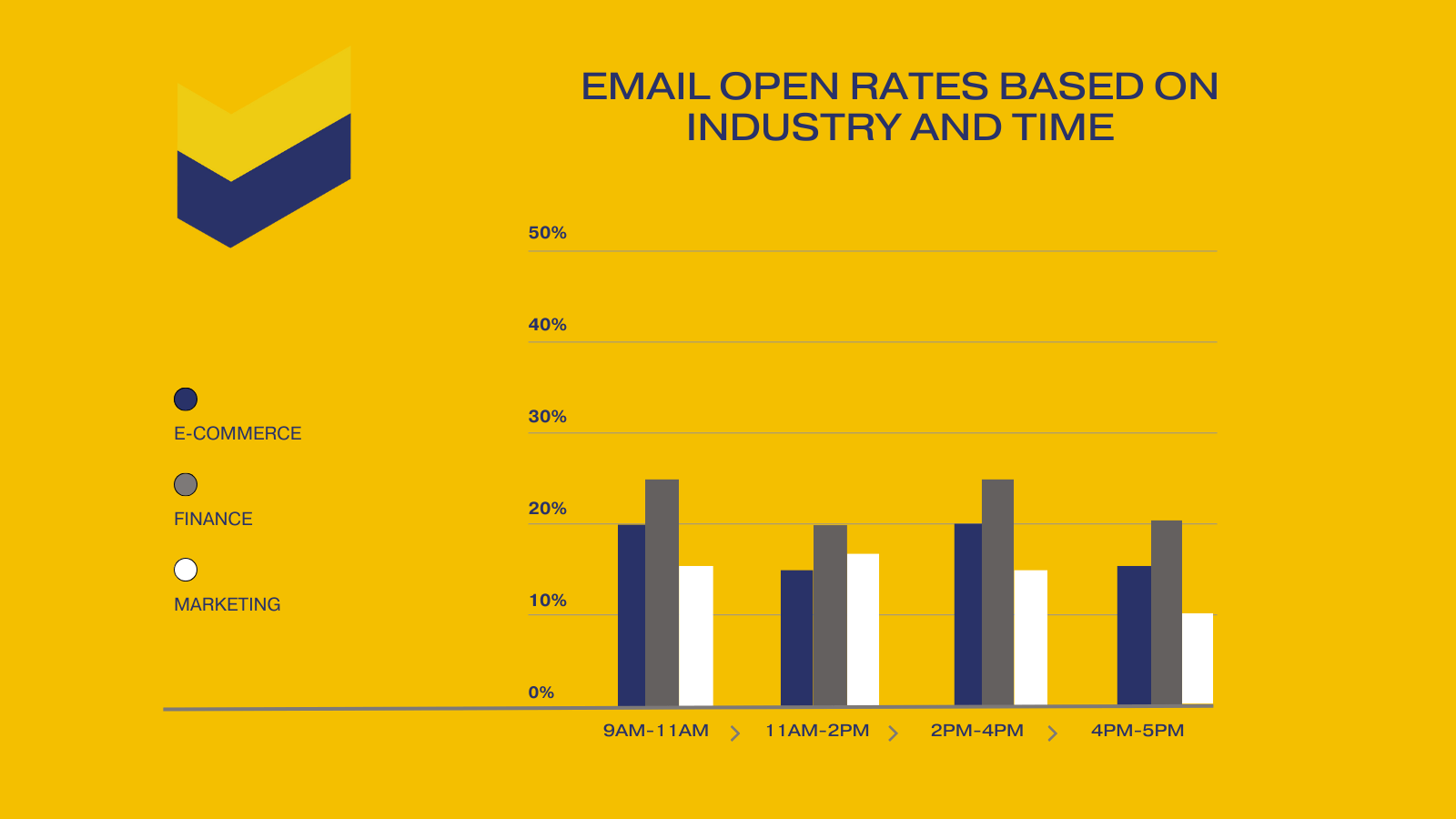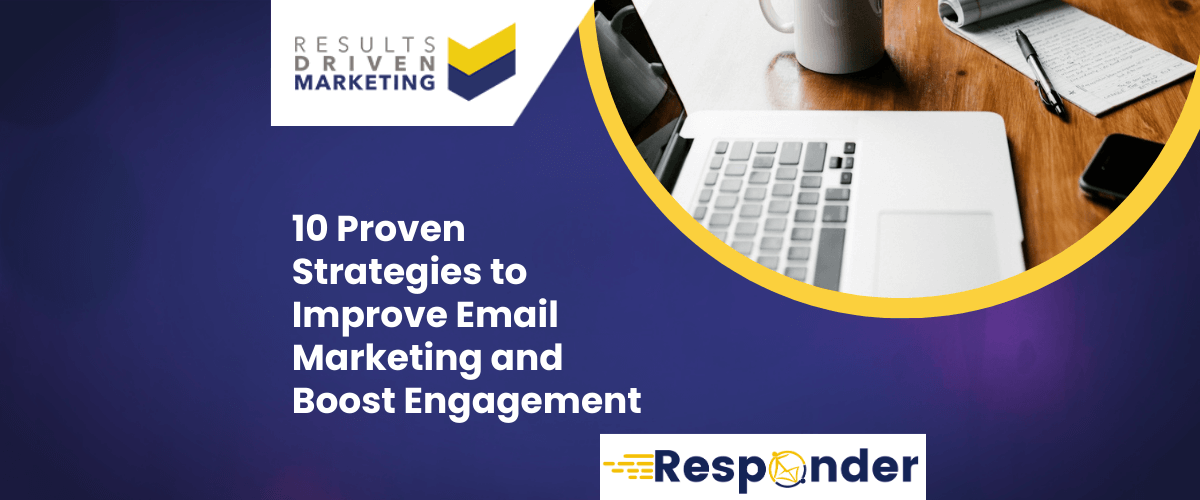
Email Marketing for Businesses
In today’s dynamic digital landscape, Email Marketing for Businesses stands as a beacon of effective communication. Amidst the cacophony of online strategies, this method has consistently showcased its prowess. It’s more than just dispatching monthly newsletters or flashing promotional offers; it’s about crafting a bond, nurturing a rapport, and fostering trust.
Harnessing the power of email marketing can bridge the gap between businesses and their audience, ushering in genuine engagement. It’s intimate, straightforward, and when orchestrated correctly, remarkably potent.
Whether you’re an adept marketer or a fledgling business navigating the vast realm of digital outreach, grasping the subtleties of email marketing becomes imperative. It isn’t merely another feather in the cap; it’s a transformative force. So, let’s set forth on this expedition, delving deep into the world of Email Marketing for Businesses, and revealing its capacity to innovate and ascend.
Table of contents:
What Is Email Marketing?
At its core, email marketing is more than just sending out newsletters or promotional offers to a list of email addresses. It’s a strategic, well-thought-out process of engaging with your audience, both existing and potential, in a meaningful way.
Email marketing for businesses encompasses a range of activities – from designing compelling email content and segmenting your audience for targeted messaging, to analysing the success metrics of your campaigns. It’s about creating value, fostering relationships, and yes, driving sales.
Why Building Your Email List is so Important
Dive into the world of digital marketing, and you’ll soon realise that your email list is akin to gold. But why is it held in such high regard?
Well, a curated email list is a direct line to your audience. It’s a collection of individuals who’ve shown interest in what you have to offer, making them prime candidates for conversion.
Direct Engagement: Unlike other platforms where your message might get lost in the noise, emails land directly in your audience’s inbox. It’s personal, direct, and often welcomed.
Controlled Messaging: With a curated list, you have the power to segment and tailor your messages. Whether it’s a new product launch or a special discount, you can ensure the right message reaches the right audience.
High ROI: The return on investment for email marketing, especially when you have a well-maintained list, is impressive. Every email sent is an opportunity for conversion, and with the right strategy, the results can be substantial.
Getting Started with Email Marketing
Embarking on the journey of email marketing for businesses? Well, you’re in for an exciting ride.
But before you dive deep, it’s crucial to get the basics right. After all, a strong foundation paves the way for success.
Choose the Right Platform: The market is brimming with email marketing tools, each with its unique features. Whether you’re a small business or a large enterprise, there’s a tool tailored for your needs.
Do your research, take advantage of trial versions, and pick one that aligns with your goals.
Segment Your Audience: Not all your subscribers are the same. Segmenting them based on various criteria like demographics, purchase history, or engagement levels can make your campaigns more effective.
Craft Compelling Content: The heart of email marketing for businesses lies in the content. Ensure it resonates with your audience, offers value, and compels them to take action.
Design Matters: A visually appealing email not only captures attention but also enhances readability. Use templates, incorporate your brand colours, and ensure it’s mobile-friendly.
Email Marketing Campaign Essentials
So, you’ve taken the plunge. But what makes an email marketing campaign tick? Here’s a breakdown of the essentials:
Clear Objectives: Before hitting send, define what you aim to achieve. Whether it’s boosting sales, increasing website traffic, or building brand awareness, having a clear goal can guide your strategy.
Personalisation: In today’s digital age, generic emails just won’t cut it. Personalise your emails, address subscribers by their name, and offer content that caters to their interests.
Call to Action (CTA): Every email should have a purpose, and a clear CTA guides your subscribers on what to do next. Whether it’s “Shop Now”, “Read More”, or “Get Started”, make it stand out.
Improving Your Email Open Rates
The thrill of seeing high open rates is unparalleled. But achieving it requires a blend of art and science. Here’s how you can give those numbers a nudge:
Craft Catchy Subject Lines: Your subject line is the first thing subscribers see. Make it intriguing, relevant, and something they can’t resist clicking on.
Optimise Send Times: Believe it or not, the time you send your emails can impact open rates. Analyse when your audience is most active and schedule your emails accordingly.
Maintain List Hygiene: Regularly clean your email list. Remove inactive subscribers, ensure your emails aren’t landing in the spam folder, and always provide an easy opt-out option.
Automate Your Email Marketing
Automation is the future of email marketing for businesses. It not only saves time but also enhances efficiency. Here’s a brief introduction:
Why Automate?: Imagine sending personalised emails to thousands of subscribers manually. Daunting, right? Automation tools can do this in a jiffy, ensuring your emails reach the right people at the right time.
Types of Automated Campaigns: From welcome emails, cart abandonment reminders to birthday wishes, the possibilities are endless.
Choosing the Right Tool: While several tools offer automation features, pick one that’s scalable, offers detailed analytics, and aligns with your budget.
What are the advantages of email marketing for businesses?
In the vast realm of digital marketing, email marketing for businesses has carved a niche for itself, and for good reason. Let’s delve into the myriad of advantages it offers:
Direct Line of Communication: Unlike other platforms where your message might get lost in the noise, emails land directly in your audience’s inbox. It’s personal, direct, and often welcomed.
Cost-Effective: When you weigh the costs against the potential returns, email marketing stands out as one of the most cost-effective marketing strategies out there.
Highly Targeted: With the power of segmentation, you can tailor your messages to specific segments of your audience, ensuring relevancy and increasing engagement.
Measurable Results: Wondering how your campaign fared? With detailed analytics at your fingertips, you can gauge open rates, click-through rates, and conversions, to name a few.
Flexibility: Whether you’re announcing a new product, sharing a newsletter, or offering a discount, email marketing is versatile enough to cater to various objectives.
What are the disadvantages of email marketing for businesses?
While the allure of email marketing is undeniable, it’s not without its challenges. Here’s a look at some potential pitfalls:
Spam Filters: One of the biggest challenges is ensuring your emails don’t end up in the dreaded spam folder. It’s a fine line between persuasive and pushy.
List Maintenance: An outdated email list can do more harm than good. Regular cleaning is essential to remove inactive subscribers and avoid bounces.
Over Saturation: With the sheer volume of emails people receive daily, standing out can be a challenge. It’s crucial to strike a balance and avoid overwhelming your subscribers.
Is email marketing for businesses a good idea?
The digital marketing landscape is vast, and while email marketing for businesses has its set of challenges, its benefits often outweigh the cons. With the right strategy, tools, and content, it can be a game-changer.
The key lies in understanding your audience, offering value, and continuously iterating based on feedback and analytics.
What are the key considerations when email marketing for businesses?
Embarking on an email marketing journey? Here are some pivotal factors to keep in mind:
Know Your Audience: Before crafting that perfect email, understand who you’re talking to. What are their preferences, pain points, and aspirations?
Quality Over Quantity: It’s easy to get caught up in the numbers game. However, sending fewer, high-quality emails can often yield better results than bombarding your subscribers.
Mobile Optimisation: With a significant chunk of users accessing emails on mobile, ensuring your emails are mobile-friendly is no longer optional.
Consistent Branding: Your emails should be an extension of your brand. Consistent branding, be it in terms of colours, fonts, or tone, enhances brand recall.
Test and Iterate: The world of email marketing for businesses is ever-evolving. Regularly test different elements of your emails, be it the subject line, content, or CTA, and iterate based on results.
What are the alternatives to email marketing for businesses?
In the vast digital marketing arena, while email marketing for businesses holds its unique charm, there are other avenues that businesses can explore. Let’s delve into some of these alternatives:
Social Media Marketing: Platforms like Facebook, Instagram, and LinkedIn offer businesses a chance to engage with their audience in real time, fostering community and brand loyalty.
Content Marketing: Through blogs, videos, and infographics, businesses can offer value, establish authority, and drive organic traffic to their websites.
Pay-Per-Click (PPC) Advertising: Want immediate visibility? PPC campaigns, especially on platforms like Google Ads, can place your business right at the top of search results.
Affiliate Marketing: By collaborating with influencers and industry leaders, businesses can tap into new audiences and drive sales.
Search Engine Optimisation (SEO): A well-optimised website can attract organic traffic, ensuring a steady flow of potential customers.
While each of these strategies has its merits, it’s essential to understand that email marketing for businesses offers a direct line of communication, making it uniquely personal and effective.
How to Optimise Your Email Marketing Strategy
So, you’ve dipped your toes into the world of email marketing for businesses. But how do you elevate your game? Here are some advanced techniques:
A/B Testing: Experiment with different subject lines, content, or CTAs to see what resonates best with your audience.
Segmentation: Go beyond basic demographics. Segment based on behaviour, purchase history, or even how subscribers interact with your emails.
Interactive Content: Incorporate polls, quizzes, or interactive images to boost engagement rates.
Retargeting Campaigns: Re-engage subscribers who’ve shown interest in a product or service but haven’t taken the final step.
The Future of Email Marketing
The digital landscape is ever-evolving, and so is email marketing for businesses. As we gaze into the future, we can anticipate:
AI-Powered Personalisation: Advanced algorithms predicting what content a subscriber would most likely engage with.
Voice-Activated Emails: With the rise of voice search, voice-activated email interactions aren’t far behind.
Enhanced Automation: Beyond basic triggers, automation will become more intuitive, enhancing the user journey at every step.
FAQ
What is email marketing?
At its essence, email marketing for businesses is a digital strategy that involves sending emails to prospects and customers, aiming to engage, convert, and retain.
Why is email marketing important for businesses?
It offers a direct line of communication, is cost-effective, highly targeted, and yields a significant ROI when done right.
How does email marketing work?
Businesses curate a list of email subscribers, segment them based on various criteria, craft tailored emails, and send them out using email marketing platforms.
How to start with email marketing?
Begin by choosing the right platform, building a subscriber list, crafting compelling content, and analyzing the results to iterate.
How to measure the success of an email marketing campaign?
Key metrics include open rates, click-through rates, conversion rates, and overall ROI.
What tools are essential for email marketing?
Email marketing platforms, analytics tools, design software, and segmentation tools are pivotal.
How can businesses automate their email marketing campaigns?
By using advanced email marketing platforms that offer automation features, businesses can set triggers based on subscriber behaviour.
What challenges might businesses face in email marketing?
Potential pitfalls include high bounce rates, landing in spam folders, low engagement, and maintaining list hygiene.
Conclusion
Email marketing, often hailed as one of the digital age’s most potent tools, continues to stand the test of time, offering businesses a unique blend of reach, engagement, and ROI.
As we’ve navigated the nuances of crafting compelling campaigns, segmenting audiences, and analysing metrics, it’s evident that email is more than just a communication channel—it’s a bridge connecting businesses to their audience in meaningful, personalised ways.
For businesses, large or small, email marketing isn’t just a strategy; it’s an ongoing conversation, fostering relationships and driving growth. As the digital landscape continues to evolve, the essence of email remains consistent: delivering the right message to the right person at the right moment. Embracing this tool with creativity, strategy, and authenticity will ensure that businesses not only reach their audience but also resonate with them, fostering loyalty and success in an ever-competitive market.
Who are we?
Providing b2b database solutions is our passion.
Offering a consultancy service prior to purchase, our advisors always aim to supply a database that meets your specific marketing needs, exactly.
We also supply email marketing solutions with our email marketing platform.
We have the best data of email lists for your networking solutions as well as direct mailing lists & telemarketing lists
A good quality b2b database is the heartbeat of any direct marketing campaign…
It makes sense to ensure you have access to the best!
Call us today on 0191 406 6399 to discuss your specific needs.
Results Driven Marketing
0191 406 6399








